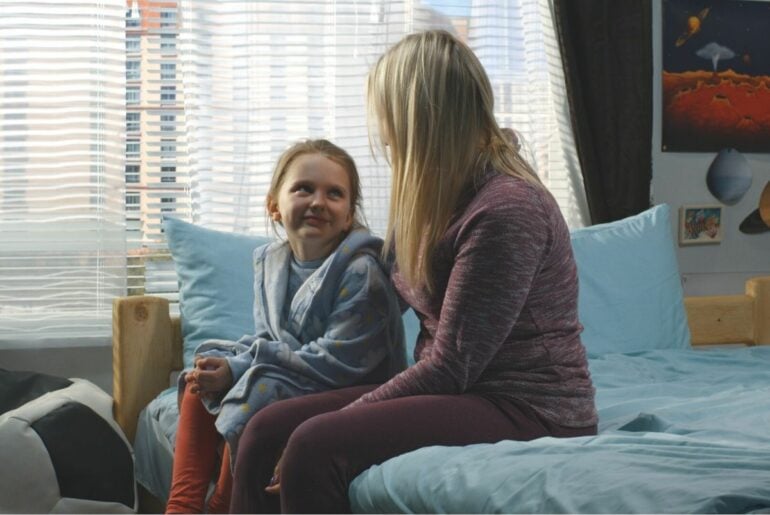Puberty is challenging for any kid. Their bodies and brains are changing fast, and many kids don’t know exactly what to expect. Those who will begin menstruating in the coming months or years might experience even more uncertainty or stress, depending on how prepared they feel for what’s ahead.
To help ease their mind and your own, it’s not too early to start thinking about how to prepare your kid for their first period. Being open and honest about what’s coming can dispel a lot of the fears and misconceptions many young people have about periods and menstruating bodies. Here are 5 ways you can prepare your preteen before they get their first period—
1. Prepare yourself first
Before you approach any conversations about menstruation with your own kids, take a moment to reflect on your own feelings and attitudes about periods. We often carry lots of misconceptions and judgments with us from our own upbringing, so it’s important to check your own biases before you pass them on. Any ideas about periods being a “curse” or making menstruating folks weak or irrational are based in misogynistic myths and should be left out of the period talk with your child.
It’s also worth saying that there are lots of complicated feelings that might come up for parents who have kids approaching puberty. While you may feel sad or overwhelmed that your child is growing up, it’s super important to try to compartmentalize those feelings during the period talk. You want your kid to come away from the conversation feeling empowered rather than feeling responsible for your emotions.
2. De-stigmatize and de-mystify
Periods come with a lot of stigma, leaving 48 percent of people who menstruate being embarrassed about their period. But knowledge in this case is definitely power, and being aware of what to expect as much as possible can give menstruating kids the confidence they need to handle tricky situations as they arise. Starting this open and honest conversation about periods is a huge first step toward destigmatizing the subject. While talking, be sure to call it what it is—menstruation or a period—rather than cutesy nicknames like “the monthlies” or “Aunt Flo,” to break down the attitude that periods are taboo and shouldn’t be openly discussed.
For more, this kid-friendly video series from Columbia University health experts explores topics like body odor, mood swings, what happens when you flush feminine hygiene products down the toilet, and other potentially embarrassing situations they’ll want to be prepared for. They also have a first period guidebook for preteens and their families!
3. Play with period products!
This is a great excuse for a fun shopping trip together, to explore the different period products on the market and talk about how to use each one. Some companies even sell first period kits which have a few different samples of products (or you can just make one yourself!). If you’re comfortable enough and also have periods, it’s ideal to show your kid how to use each product on yourself before they try on their own.
When it comes to the discomfort associated with periods, let them know which PMS symptoms are common. It can also help to share how PMS affects you personally, if you experience it. You can even put some PMS remedies in their period kit, like a microwavable heating pad, some herbal tea to help with cramps, and even some chocolate in case they get cravings!
4. Don’t shy away from the bloody details
Kids have big imaginations, so where there is a lack of information, their brains will fill in the gaps (most likely with incorrect info or assumptions). They might assume that bleeding during a period is the same as bleeding from a cut or wound, so it can be a scary prospect! Explain that the uterus is about the size of a fist, and only holds about three tablespoons of actual blood which will slowly leak out over the course of several days. It might be helpful to show them what three tablespoons actually looks like with water or juice.
5. Talk logistics and planning
Once you’ve explained the mechanics of a period, the next step is to teach your kid about the logistical part. What happens if your period starts and you don’t have any supplies? What do you do if you get blood on your clothes in public? Talking through these scenarios can help them mentally prepare for what’s ahead. For the first couple of years, their periods will most likely be pretty irregular, so keeping them prepared with plenty of supplies and keeping communication open about what’s going on can give the whole family some peace of mind. It may help to keep a calendar or app together where you can both keep track of when their periods started and ended, and watch the trends each month as they become more regular.
It’s never too early to start de-stigmatizing periods in your family and preparing your kid for their first cycle. Knowing a little about what’s ahead can go a long way toward easing any anxiety or fear they might feel as puberty approaches.







